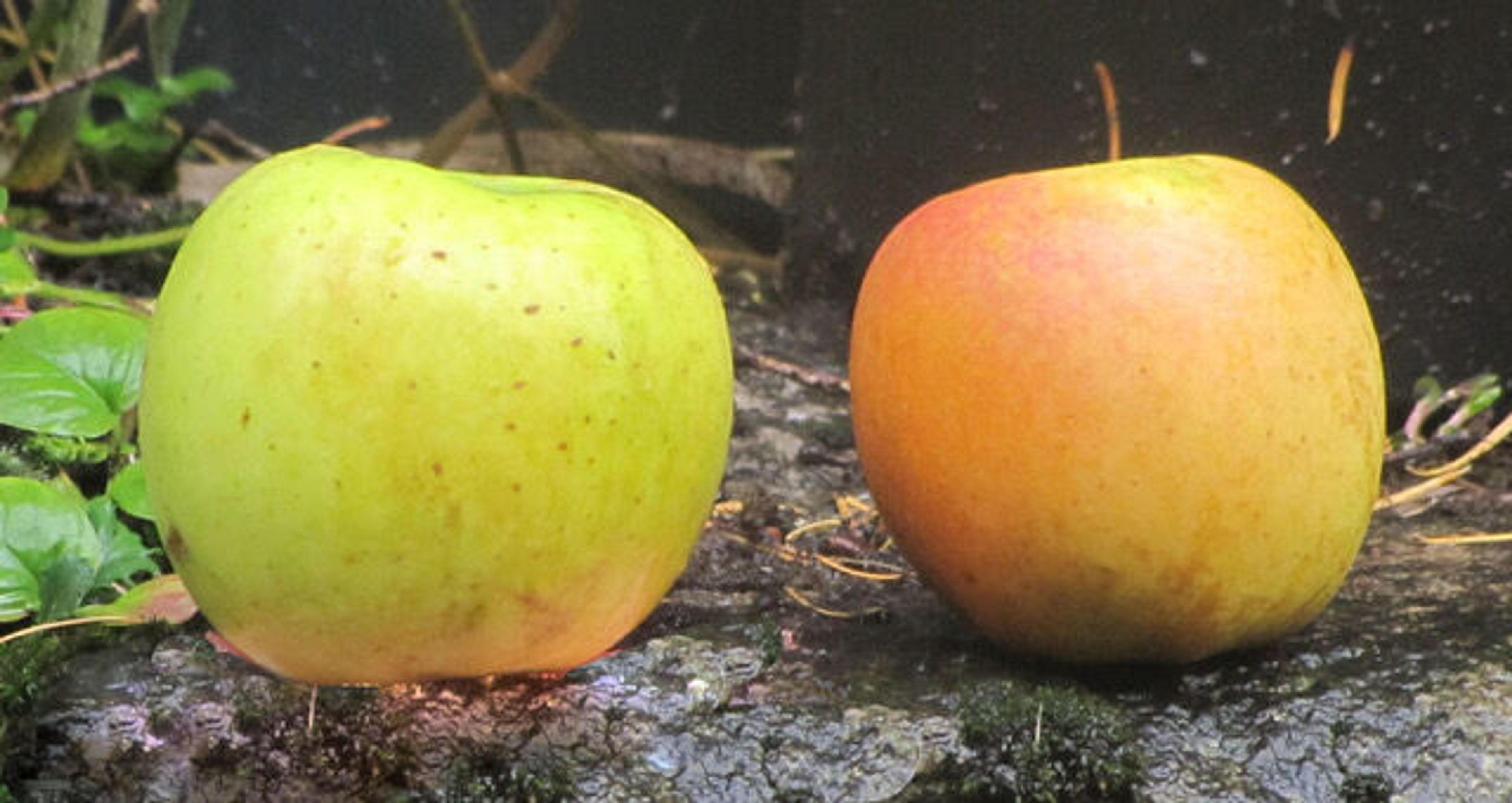‘Lost’ apple found near Moscow
Nonprofit announces discovery of variety thought to be extinct
An apple variety that was previously thought to be lost or extinct was discovered near Moscow.
The Lost Apple Project, a nonprofit under the Whitman County Historical Society, announced the discovery Wednesday. The Lost Apple Project partnered with The Temperate Orchard Conservancy eight years ago to find lost apples in Washington. Its operations have since expanded to Idaho and Oregon.
According to a news release from the nonprofit, the lost apple was found in an orchard just south of Moscow. It was likely planted by Daniel Gamble soon after he established a 160-acre homestead there in 1880.
The apple, which has been named “Gamble Gold,” has a gold color, a sweet-tart taste and ripens in mid-October. Rebecca McGee, a USDA research geneticist working with The Lost Apple Project, told the Daily News that genotyping and phenotyping of the “Gamble Gold” apple tree was completed in 2020 and 2022. It was given its name in May.
Washington State University Professor Cameron Peace told the Daily News the apple is related to the Grimes Golden and Golden Russet varieties.
Peace has compiled a data set of more than 3,000 apple varieties and is working with the Lost Apple Project to identify apple trees and confirm if they are a lost variety.
WSU is also helping the Lost Apple Project preserve these rare trees. McGee said grafts of the trees are being used to grow these rare varieties at WSU’s Spillman Farm. She said WSU has allocated space to grow several hundred trees.
In total, the Lost Apple Project has tracked down 31 apple varieties that were previously considered lost or extinct. Along with the apple found near Moscow, The Lost Apple Project also announced a lost variety was found at the Polly Bemis Ranch, a designated national historic site located on the upper Salmon River approximately 44 miles east of Riggins.
That apple has been named “Polly Bemis” and has a red color with a sweet-tart taste. It ripens in early September.
McGee said there is a growing interest among the public to find these special kinds of apples. She said people have contacted the nonprofit after they had just purchased an old homestead with old apple trees. Descendants of homesteaders who are unsure of what kinds of apples grow on their properties will also reach out to the Lost Apple Project.
She said the Lost Apple Project is raising awareness of these “hidden gems’ in people’s backyards.
McGee said the apple varieties connect people with their ancestors and the place they live.
“It really can ground us in the history of this region,” she said.
Peace said each apple variety has its own story attached to it. Each has made contributions to society in its own way because of its flavor, nutrition and value to rural economies. They also have unique genetic factors that make them valuable for breeding new apples.
His lab is working to fill in their data set with enough varieties to create a single family tree of all apples.
Kuipers can be reached at akuipers@dnews.com.




